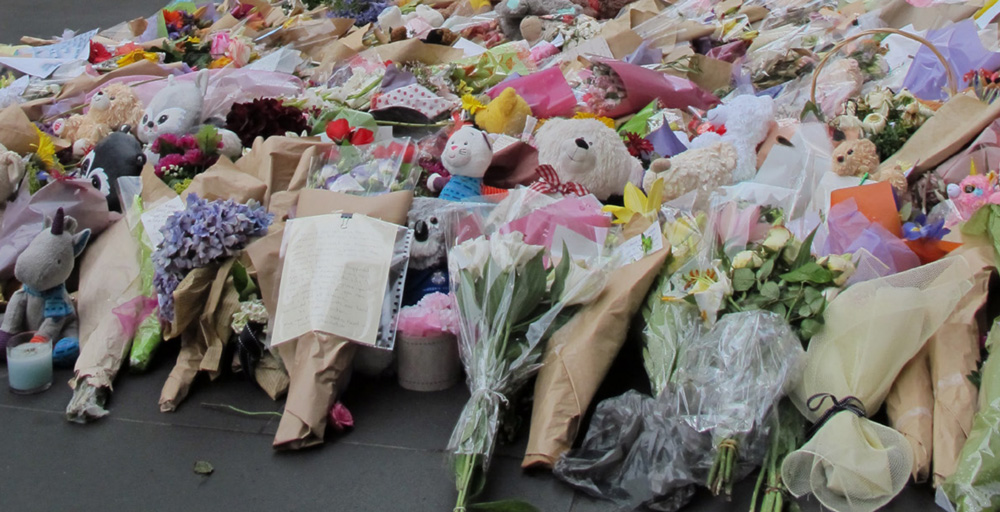


language Also available in these languages:
Arabic | Farsi | Hebrew | Kurdish | Nepali | Russian | Somali | Swahili | Turkish | Ukrainian
Australian Red Cross stands with all communities in the face of tragedy and distress. In our decades of supporting communities to recover or cope with distress, we are strongly aware of the impact disasters have on friends, families and communities. People and especially children can feel more vulnerable, worried or scared as a result of these events. This information might help.
It is common to feel upset. It’s important to talk to people you trust about how you are feeling, and take extra care of yourself. Acknowledge that you have been through a highly stressful event, and notice how you are feeling. Try and get good sleep and rest, eat good food and try to make time for things that make you feel safe.
Being impacted by distressing events can impact our bodies, our brains and our relationships. While some people experience a range of reactions, it’s important to remember that most people recover well from distressing events over time with support from their family, friends and community.
Some of the physical impacts of stress that you may experience can include:
These are common reactions to the types of stress that disasters cause. For most people, these effects will fade over time, but if they are still present 4-6 weeks after the event it is important to seek help.
During and after a distressing event, it’s natural to want to access as much information as possible.
However, it’s a balance to make sure you’re getting the information that you need without over exposing yourself to harmful effects of repeatedly seeing or hearing stressful information. For many people, too much media exposure can increase feelings of distress.
Minimising exposure to stressful or traumatic images and sounds is particularly important for children.
Some tips for limiting your exposure to stressful media include:
Distressing events can feel very overwhelming. Despite the enormity of the impacts, most people recover well from a disaster with the support of their friends, families, colleagues and neighbours.
When wanting to help loved ones, some people feel unsure about how they can best help, and worry that they may do the wrong thing. There are some simple things that you can do to support your friends and family members.
Helping and supporting others through distressing events such as disasters can be stressful in itself.
Communities, volunteers, friends and family members who are helping those who have been affected by a disaster also need to take care of themselves.
Some tips:
It’s very common for parents to worry about their children after a distressing event. Most parents worry about whether the behaviours their children are showing are commonly felt, and how they can best support them.
While a range of reactions in children is common, the strongest predictor of how children will recover is how the important adults in their life recover, so it’s important that adults look after themselves. Think about it like putting on an oxygen mask when you’re on a plane – you have to look after yourself first so that you can help other people.
Below are some examples of how children may react to a distressing event.
Some common reactions include:
They may experience any of the previous reactions, but also may:
May experience the previous reactions, but also may:
As above, but other reactions may include:
Young adults will have their own relationships beyond the immediate family to nurture. Some may be parents themselves. They may also have financial, workplace or other responsibilities. All children and young people, regardless of their age, need parents to set good and consistent examples, especially when life is disrupted. Ensure they have people their own age to turn to if they need extra support.
After distressing events parents want to support their children in responding to and dealing with the events. Here are some tips.
What might be helpful:
What is less helpful:
These agencies may be able to provide additional help if you are experiencing difficulties coping after a distressing event has happened:
Contact your local doctor/GP
Phone Lifeline on 13 11 14
Phone Beyondblue on 1300 22 4636
Phone Kids Helpline on 1800 551 800
If you want more information about Australian Red Cross contact: 1800 RED CROSS (733 276) or email contactus@redcross.org.au
Red Cross pays our respects to the Aboriginal and Torres Strait Islander custodians of the country where we work, and to Elders, past, present and emerging.
Learn about our Reconciliation Action Plan and how we can all make reconciliation real.
This website may contain the images, voices or names of people who have passed away.


© Australian Red Cross 2026. ABN 50 169 561 394
